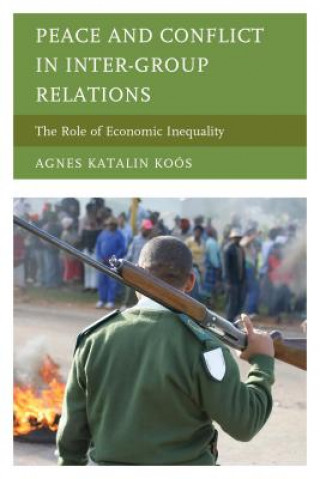
Kód: 05327343
Peace and Conflict in Inter-Group Relations
Autor Agnes Katalin Koos
The book ventures into the explanation of intra-state communal conflict, more narrowly of the conflict between majority and minority communal groups, and develops arguments that highlight the causal impact of inter-group economic ... celý popis
- Jazyk:
 Angličtina
Angličtina - Vazba: Pevná
- Počet stran: 360
Nakladatelství: Lexington Books, 2014
- Více informací o knize

Mohlo by se vám také líbit
-
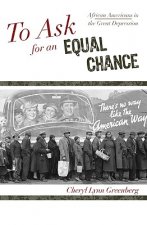
To Ask for an Equal Chance
1768 Kč -

Treasury of Wisdom
343 Kč -

Understanding Disability
6728 Kč -

Understanding the Counselling Relationship
3479 Kč -

SIP Security
3311 Kč -

Seizure
252 Kč -

Embroideries and Samplers from Islamic Egypt
1285 Kč
Darujte tuto knihu ještě dnes
- Objednejte knihu a zvolte Zaslat jako dárek.
- Obratem obdržíte darovací poukaz na knihu, který můžete ihned předat obdarovanému.
- Knihu zašleme na adresu obdarovaného, o nic se nestaráte.
Více informací o knize Peace and Conflict in Inter-Group Relations
Nákupem získáte 457 bodů
 Anotace knihy
Anotace knihy
The book ventures into the explanation of intra-state communal conflict, more narrowly of the conflict between majority and minority communal groups, and develops arguments that highlight the causal impact of inter-group economic inequality. Its quest for empirical support has led to the compilation of three large, inter-related datasets, typifying the condition of minorities worldwide. They are mainly based on the Ethnic Power Relations, Minorities at Risk, and Quality of Government data, yet also involve information from a multitude of other sources, such as national statistics, cross-national demographic surveys and the World Directory of Minorities and Indigenous Peoples. The group-level data, featuring 860 communal groups, show that an impressive 45% of the world's population do not belong to the majority communal group in their country. As reasonably feared, minorities are in general politically less empowered than their pluralities, and also poorer. Results from multivariate regression analysis corroborate the deleterious impact of horizontal economic inequality on inter-group hostility, measured either as group grievance or violent conflict. The double measurement substantiates the intuition that not all low-to-medium strength hostility is doomed to develop into violent conflict. In fortunate conditions, inter-group disputes can be solved, or compromises may be reached without turning to violence. Part of the analytical efforts has been directed towards detecting the differences between the causes of communal and non-communal social conflicts; and also towards deciphering which institutional conditions aggravate and which mitigate communal conflicts. A large number of variables in the regression models attempt to operationalize constellations that influence the evolution of conflicts either toward peaceful solutions or toward armed collision. The policy implications of the findings are not trivial. Positive discrimination, which in the US is known as Affirmative Action, is often resisted by denying the unfortunate facts that make it necessary. In addition, currently the policies recommended for heterogeneous societies are also fiercely debated between advocates of power-sharing arrangements and those who would like to facilitate the communal homogenization of each state. This latter type of constitutional engineering is at variance with the political empowerment of minorities, a measure that could alleviate tensions rooted in economic disadvantages.
 Parametry knihy
Parametry knihy
Zařazení knihy Knihy v angličtině Society & social sciences Politics & government Central government
4572 Kč
- Plný název: Peace and Conflict in Inter-Group Relations
- Podnázev: The Role of Economic Inequality
- Autor: Agnes Katalin Koos
- Jazyk:
 Angličtina
Angličtina - Vazba: Pevná
- Počet stran: 360
- EAN: 9781498502887
- ISBN: 1498502881
- ID: 05327343
- Nakladatelství: Lexington Books
- Hmotnost: 686 g
- Rozměry: 237 × 156 × 28 mm
- Datum vydání: 18. November 2014
Oblíbené z jiného soudku
-

Laws of Power
797 Kč -

Rise and Fall of the Great Powers
464 Kč -

Last Hours of Ancient Sunlight: Revised and Updated Third Edition
368 Kč -
![What Has the Government Done to Our Money? [Reprint of First Edition] What Has the Government Done to Our Money? [Reprint of First Edition]](https://media.libris.to/jacket/08800577t.jpg)
What Has the Government Done to Our Money? [Reprint of First Edition]
187 Kč -

New Tsar
276 Kč -

Countdown
849 Kč -

What's Wrong with Protectionism
842 Kč -

Blowback
395 Kč -

Weapons of Math Destruction
334 Kč -

Vision of the Anointed
406 Kč -

The Quest for Cosmic Justice
347 Kč -

Soul at Work
403 Kč -

Capital in the Twenty-First Century
1069 Kč -

Wealth, Poverty and Politics
830 Kč -

Public Opinion by Walter Lippmann
355 Kč -

Kissinger
423 Kč -

Confessions of a Greenpeace Dropout
1070 Kč -

Regulating Cannabis
236 Kč -

Accessory to War
646 Kč -

Austerity
356 Kč -

How Much is Enough?
302 Kč -

Five Stages of Collapse
499 Kč -

Radical Markets
891 Kč -

Breaking the Vicious Circle
1088 Kč -

Chasing the Scream
368 Kč -

Cortical Visual Impairment - Approach to Assessment
2216 Kč -

Preserving Biodiversity
254 Kč -

In Defense of Degrowth
644 Kč -

Columbine High School Massacre
808 Kč -

Barack Obama Speeches
491 Kč -

Oxford Handbook of the Welfare State
1142 Kč -

American Age
1699 Kč -

Production of Money
318 Kč -

American Power And The New Mandarins
681 Kč -

Millipedes and Moon Tigers
850 Kč -
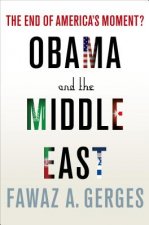
Obama and the Middle East
481 Kč -

Is Democracy Failing?
394 Kč -

Understanding E-Government in Europe
1900 Kč -

Foreign Policy Begins at Home
571 Kč -

Fairness versus Welfare
1769 Kč -
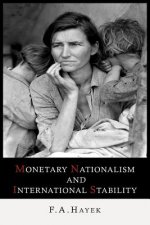
Monetary Nationalism and International Stability
351 Kč -
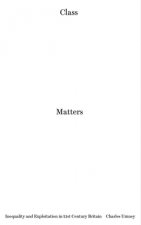
Class Matters
696 Kč -

Watchdog Still Barks
800 Kč -

Environmental Policy
1464 Kč -

Stop! Armed Police!
838 Kč -

Sustainable Failures
986 Kč -

NYE
918 Kč -

Global Warming Scam
567 Kč -
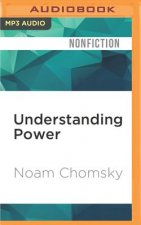
Understanding Power: The Indispensable Chomsky
764 Kč
Osobní odběr Praha, Brno a 12903 dalších
Copyright ©2008-24 nejlevnejsi-knihy.cz Všechna práva vyhrazenaSoukromíCookies



 Vrácení do měsíce
Vrácení do měsíce 571 999 099 (8-15.30h)
571 999 099 (8-15.30h)